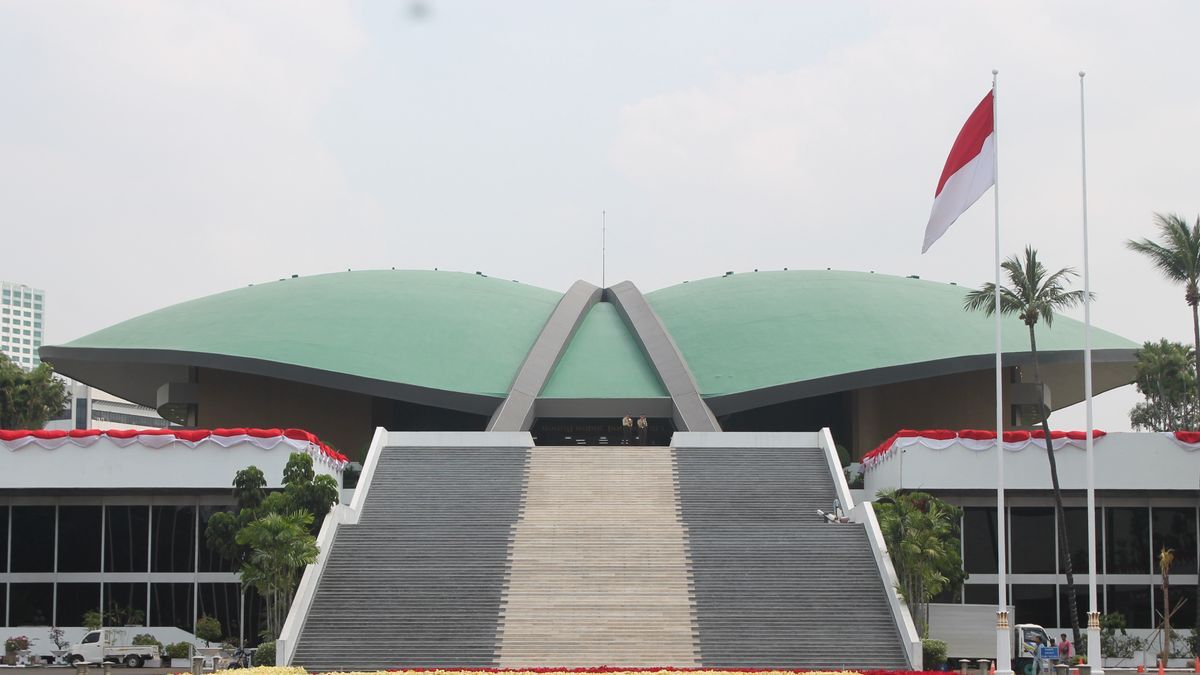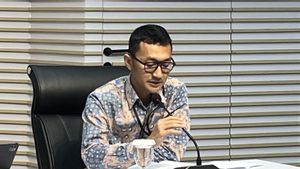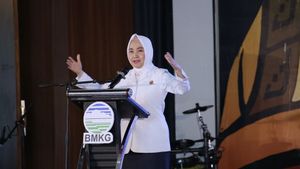JAKARTA - The Indonesian Legal Aid Foundation (YLBHI) has urged the Indonesian Parliament to cancel the discussion of the Work Creation Omnibus Law Bill in the midst of the corona virus pandemic or COVID-19. Besides that, there were five other suggestions that were also conveyed by YLBHI through their chairman, Asfinawati.
"We demand that the DPR cancel the discussion of the Omnibus Law on the Job Creation Bill which threatens the poor in the face of the COVID-19 pandemic," said Asfinawati in her written statement, Monday, March 30.
Instead of discussing the Work Creation Omnibus Law Bill, the DPR should focus on carrying out its supervisory function towards the government in dealing with the spread of the corona virus in Indonesia. In addition, legislators must ensure that people get their rights in the face of situations like this.
"(The DPR must) ensure the responsibility of the state to provide for all the needs of the people in the face of the COVID-19 pandemic, including providing food, water, sanitation and financial assistance for the poor," said Asfinawati.
The function of protecting the community from vulnerability in the face of this pandemic must also be carried out. This includes ensuring occupational health and safety (K3) for workers, stopping forced evictions in agrarian conflicts to prevent vulnerable communities from the threat of the virus originating from Wuhan City, China.
Furthermore, together with the government, the DPR must be able to discuss the reallocation of the State Budget in various sectors for handling and controlling COVID-19. Asfinawati assessed that many sectors in the APBN could be cut and transferred to the health insurance program.
"(DPR) together with the government cut and relocated the state budget post to ensure the health and safety of the people. Including cutting posts for salaries and allowances for members of the DPR and directors of BUMN to provide PPE for medical personnel and the poor," he said.
Asfinawati also asked the DPR to ensure that the information provided by the government to the public is carried out in a clear, accurate, timely manner, consistent with the principles of human rights (HAM) and is not discriminatory.
"(DPR) urges the government to take steps to reduce gender impacts and ensure that the handling of COVID-19 does not perpetuate gender injustice," he said.
The WALHI Campaign Coordinator, Edo Rakhman, also asked the DPR to stop discussing the Omnibus Law in the midst of its spread because of the large number of policy makers who are concentrating on tackling the corona virus in Indonesia.
"Not only the public is focused on tackling COVID-19, but also many related policy makers are also focusing all their resources on tackling COVID-19," said Edo.
If the discussion is forced, he believes it will raise concerns in the public. In addition, legislators should pay more attention to the millions of informal workers and laborers who are faced with complex situations due to the spread of the virus.
"The forced opening of the DPR session in the current conditions has raised concerns for the public that the discussion of the Omnibus Law on the Cilaka Bill (Job Creation Bill) will be forced," he said.
Although there have been many calls for the work creation Omnibus Law Bill not to be continued during the COVID-19 pandemic, the Chairman of the Indonesian Parliament, Puan Maharani, said that this draft law will still be discussed in accordance with the applicable mechanisms in the parliamentary institution.
"Of course, we will discuss matters of the Omnibus Law according to the mechanism," said Puan at the Parliament Complex, Senayan, Central Jakarta, Monday, March 30.
The Chairperson of the PDI-P DPP said the DPR would prioritize monitoring the handling of COVID-19 in Indonesia during this session. Moreover, this virus has had a massive impact on social and economic midwives. It's just that, in addition to carrying out supervisory work, Puan also reminded that the DPR has other duties in the field of legislation and budget.
Meanwhile, according to the NasDem Faction, discussions on the Work Creation Omnibus Law Bill and the Taxation Omnibus Law Bill must be implemented immediately. This is in accordance with the presidential letter regarding the draft which has been submitted to the Indonesian Parliament.
"If the leadership has reviewed and reviewed the president's letter regarding the omnibus law, both Job Creation and Taxation, maybe it would be much better if, for example, starting to discuss whether it is given to factions, commissions, and so on," said the Secretary of the Nasdem Faction of the DPR RI. Saan Mustopa.
Moreover, according to him the COVID-19 pandemic will have an impact on the world economy. Thus, the Job Creation Bill or the Taxation Bill is important to restore economic conditions after the pandemic is over.
"To anticipate the end of COVID-19, we need to recover quickly," explained the Deputy Chairman of Commission II of the DPR RI.
Although he said that the discussion of the Omnibus Law would be carried out soon, in his opening speech for the trial period, Puan said there were only four Bills that were the focus of this trial period.
The four draft laws are the Mineral and Coal Mining (Minerba) Bill which is a carry-over bill from members of the Indonesian Parliament for the 2014-2019 period and the Bill on Personal Data Protection.
Furthermore, the Bill on Ratification of the Agreement between the Government of the Republic of Indonesia and the Government of the Kingdom of Sweden regarding Cooperation in the Defense Sector and the Bill on Archipelago Areas was proposed by the DPD RI.
The English, Chinese, Japanese, Arabic, and French versions are automatically generated by the AI. So there may still be inaccuracies in translating, please always see Indonesian as our main language. (system supported by DigitalSiber.id)








